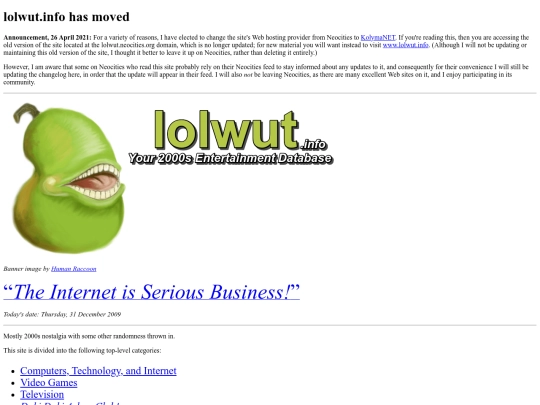Neocities.org

 rbuchanan
3 years ago
rbuchanan
3 years ago
Guess what: the security of practical sociopolitical liberty is dependent on the codified imposition of order. By their stipulations, copyleft licenses provide more eventual and probable freedom than licenses that aren't invested with the forethought to preclude potentially unfeasible or unseemly restrictions. Otherwise, they'd simply relinquish their work to the public domain -- a wise option in some circumstances.
 rbuchanan
3 years ago
rbuchanan
3 years ago
However, that's almost an ethical sideshow in comparison to the two matters that copyright, copyleft and some permissive licenses were designed to address, and to which you seem to be weirdly either oblivious or indifferent: rightful attribution and standards of reasonable or ethical profit.
 rbuchanan
3 years ago
rbuchanan
3 years ago
If contemporary Libertarians can't or won't acknowledge the immanent immorality and personal, social and cultural detriments of either plagiarism or the gainful exploitation of others' free or proprietary works (or for that matter, theft, usury, etc.), they're no more fit to participate in a mature and advanced society or its market economy than the average Marxist or anarchist.
 rbuchanan
3 years ago
rbuchanan
3 years ago
As for the presumed verbosity of certain licenses, if you imagine that the GPL3 is prolix by legal standards, I can assure you that it isn't. In order to properly address circumstantial eventualities and niceties, detail is often necessary. Faith, by so disambiguating certain points, it can in many instances expedite or even avert legal proceedings.
 rbuchanan
3 years ago
rbuchanan
3 years ago
Concerning discrepancies, I'm stupefied that you wholly oppose copyright, yet so admire one of the corporate figures who's most abused and distorted the function of copyright for lucre and market penetration. There are many reasons to execrate Bill Gates, but Microsoft's godawful licensing and the legal precedents they've established are among the most abhorrently noteworthy.
 rbuchanan
3 years ago
rbuchanan
3 years ago
This is what I find most incredible: in an age of censorially and qualitatively atrocious oligopoly, you're opposed to one of the few legal tools that ensures that an individual can produce something remunerative, yet act as though undue and abusive corporate appropriation, influence, and politicking haven't despoiled our markets, society and culture for decades.
 rbuchanan
3 years ago
rbuchanan
3 years ago
There's no moral legitimacy in the view that creatives oughtn't expect a secure opportunity in a market, or even the expectation of a market. I type this as somebody who's donated to no few people who've created free software, and who partakes abundantly of (mostly literary and musical) works in the public domain.
 lolwut
3 years ago
lolwut
3 years ago
The Neocities commenting system is inconvenient for long responses, so I've instead written it in a text file: https://www.lolwut.info/misc/robert-response.txt
 koshka
3 years ago
koshka
3 years ago
Very well-written article, even by your usual high standards, I daresay. I don't agree with the points but I can admire and respect your principles. There is an argument to be made for the perils of too much freedom (and I have personally made one before), and this I would say falls into that realm. Water is good and necessary for life, but can also drown and kill you in excess.
 koshka
3 years ago
koshka
3 years ago
Sounds very respectable and very much in the spirit of the good old Web. The whole Web used to be like that - just fun, interesting people being themselves and sharing their passions/talents instead of obsessing over crafting some fake personal brand and using it to reel in advertising money.



































































































































Feel free to post replies here or there. ;D
An interesting response from you. I will post my reply as a separate page on my site, because someone else is (probably) also writing a response to the original article, and I want to collect my replies on a single page.
it's millennialism lol T=T
;DDDDDDDDDDD